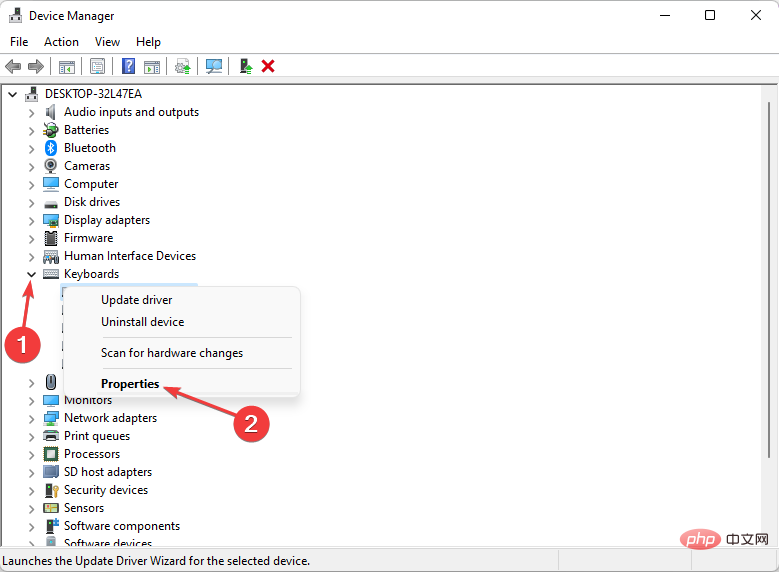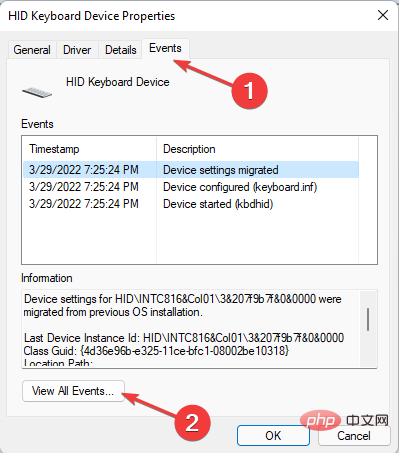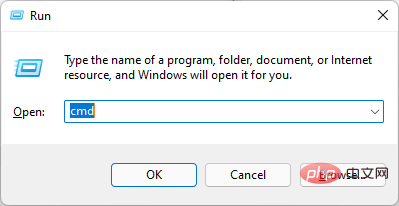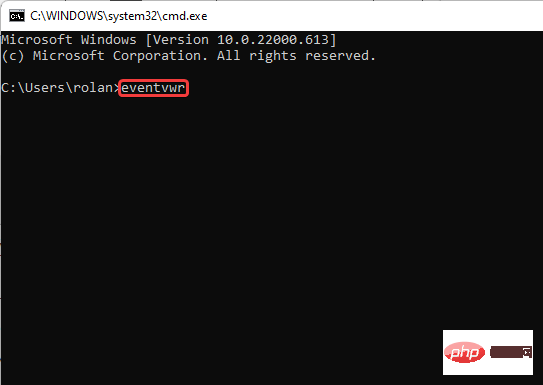How to View Device Manager Logs in Windows 11: 2 Easy Ways
All versions of Windows come with a Device Manager log that tracks your computer's applications, settings, and other functions.
These logs can be easily accessed through Device Manager or Event Viewer tools to determine the root cause of any issues.
We understand that some of these log reports may not be easy to decipher, which is why we have included in this article the general meaning of the types of events you may notice.
Types of Device Manager Logs
As mentioned earlier, Device Manager logs are detailed reports of system functional activity. It logs five main types of events:
- Application: It tracks all operations related to the application, such as installations and crash reports.
- System: It highlights reports of system information changes and any changes to device driver settings.
- Settings: Records the installation and activation of new device drivers and software on Windows.
- Security: Notifications for security-related activities, such as alerts whenever a site or application attempts to access your computer location.
- Forwarded events: It is a shared log from other connected devices in the network to which the computer belongs.
Windows Device Logs are detailed reports about important hardware and software operations generated and stored by Windows and some specialized applications.
How to check Device Manager logs on Windows 11?
1. Use Device Manager
- Right-click the Windowslogo icon in the taskbar. Select Device Manager.

- Find the device type whose logs you wish to view. For example, to check the logs for a connected keyboard, find Keyboards. Click the little arrow next to it. Right-click on the name of the device itself. Select properties.

- Select event. If you are not satisfied with the few events shown, click View All Events.

2. Through the event viewer
- press the key to start Run. Type cmd. WindowsR

- Press Enter to start Command Prompt.
- Enter the following command or copy and paste:
<strong>eventvwr</strong> ##Next, press
##Next, press - Enter.
- Critical: User login/logout, system time modification, audit log clearing, computer login/logout/restart, etc. reports .
- Errors: These are records of problems such as data loss, device failure, or an inability to load the service on startup.
- WARNING: The events documented here are not critical, but may cause future problems. This includes errors such as insufficient disk space.
- Information: Details the successful startup of the application, driver, or service. Information is logged when the driver loads successfully and executes correctly.
- Audit success: Record successful attempts to access the system, such as when a user successfully logs into the system.
- Audit failure: Unlike audit success, it records a failure to access the system. For example, when a user cannot successfully log into the system.
The above is the detailed content of How to View Device Manager Logs in Windows 11: 2 Easy Ways. For more information, please follow other related articles on the PHP Chinese website!

Hot AI Tools

Undresser.AI Undress
AI-powered app for creating realistic nude photos

AI Clothes Remover
Online AI tool for removing clothes from photos.

Undress AI Tool
Undress images for free

Clothoff.io
AI clothes remover

Video Face Swap
Swap faces in any video effortlessly with our completely free AI face swap tool!

Hot Article

Hot Tools

Notepad++7.3.1
Easy-to-use and free code editor

SublimeText3 Chinese version
Chinese version, very easy to use

Zend Studio 13.0.1
Powerful PHP integrated development environment

Dreamweaver CS6
Visual web development tools

SublimeText3 Mac version
God-level code editing software (SublimeText3)

Hot Topics
 1659
1659
 14
14
 1416
1416
 52
52
 1310
1310
 25
25
 1258
1258
 29
29
 1232
1232
 24
24
 What is the reason why PS keeps showing loading?
Apr 06, 2025 pm 06:39 PM
What is the reason why PS keeps showing loading?
Apr 06, 2025 pm 06:39 PM
PS "Loading" problems are caused by resource access or processing problems: hard disk reading speed is slow or bad: Use CrystalDiskInfo to check the hard disk health and replace the problematic hard disk. Insufficient memory: Upgrade memory to meet PS's needs for high-resolution images and complex layer processing. Graphics card drivers are outdated or corrupted: Update the drivers to optimize communication between the PS and the graphics card. File paths are too long or file names have special characters: use short paths and avoid special characters. PS's own problem: Reinstall or repair the PS installer.
 How to speed up the loading speed of PS?
Apr 06, 2025 pm 06:27 PM
How to speed up the loading speed of PS?
Apr 06, 2025 pm 06:27 PM
Solving the problem of slow Photoshop startup requires a multi-pronged approach, including: upgrading hardware (memory, solid-state drive, CPU); uninstalling outdated or incompatible plug-ins; cleaning up system garbage and excessive background programs regularly; closing irrelevant programs with caution; avoiding opening a large number of files during startup.
 How to solve the problem of loading when PS is always showing that it is loading?
Apr 06, 2025 pm 06:30 PM
How to solve the problem of loading when PS is always showing that it is loading?
Apr 06, 2025 pm 06:30 PM
PS card is "Loading"? Solutions include: checking the computer configuration (memory, hard disk, processor), cleaning hard disk fragmentation, updating the graphics card driver, adjusting PS settings, reinstalling PS, and developing good programming habits.
 How to set color mode for export PDF on PS
Apr 06, 2025 pm 05:09 PM
How to set color mode for export PDF on PS
Apr 06, 2025 pm 05:09 PM
The secret to export PDFs with accurate colors: choose color mode according to the purpose: RGB for network display, CMYK for professional printing. Check Embed Profiles when exporting to maintain color consistency. Adjust compression settings to balance image quality and file size. For PDFs for networks, use RGB mode; for PDFs for printing, use CMYK mode.
 Does mysql need the internet
Apr 08, 2025 pm 02:18 PM
Does mysql need the internet
Apr 08, 2025 pm 02:18 PM
MySQL can run without network connections for basic data storage and management. However, network connection is required for interaction with other systems, remote access, or using advanced features such as replication and clustering. Additionally, security measures (such as firewalls), performance optimization (choose the right network connection), and data backup are critical to connecting to the Internet.
 Is slow PS loading related to computer configuration?
Apr 06, 2025 pm 06:24 PM
Is slow PS loading related to computer configuration?
Apr 06, 2025 pm 06:24 PM
The reason for slow PS loading is the combined impact of hardware (CPU, memory, hard disk, graphics card) and software (system, background program). Solutions include: upgrading hardware (especially replacing solid-state drives), optimizing software (cleaning up system garbage, updating drivers, checking PS settings), and processing PS files. Regular computer maintenance can also help improve PS running speed.
 Is PS slow loading related to other programs that are running?
Apr 06, 2025 pm 06:03 PM
Is PS slow loading related to other programs that are running?
Apr 06, 2025 pm 06:03 PM
The secrets to mastering Office software include: understanding different versions and platforms, correctly installing and configuring, proficient in using the software interface, in-depth understanding of feature operations, application collaboration and sharing functions, utilizing templates and styles, mastering advanced skills, and solving common problems. In addition, you need to choose a version that suits your needs, make good use of templates and styles, develop backup habits, and learn shortcut keys and advanced techniques to improve efficiency.
 How to solve the problem of loading when the PS opens the file?
Apr 06, 2025 pm 06:33 PM
How to solve the problem of loading when the PS opens the file?
Apr 06, 2025 pm 06:33 PM
"Loading" stuttering occurs when opening a file on PS. The reasons may include: too large or corrupted file, insufficient memory, slow hard disk speed, graphics card driver problems, PS version or plug-in conflicts. The solutions are: check file size and integrity, increase memory, upgrade hard disk, update graphics card driver, uninstall or disable suspicious plug-ins, and reinstall PS. This problem can be effectively solved by gradually checking and making good use of PS performance settings and developing good file management habits.








